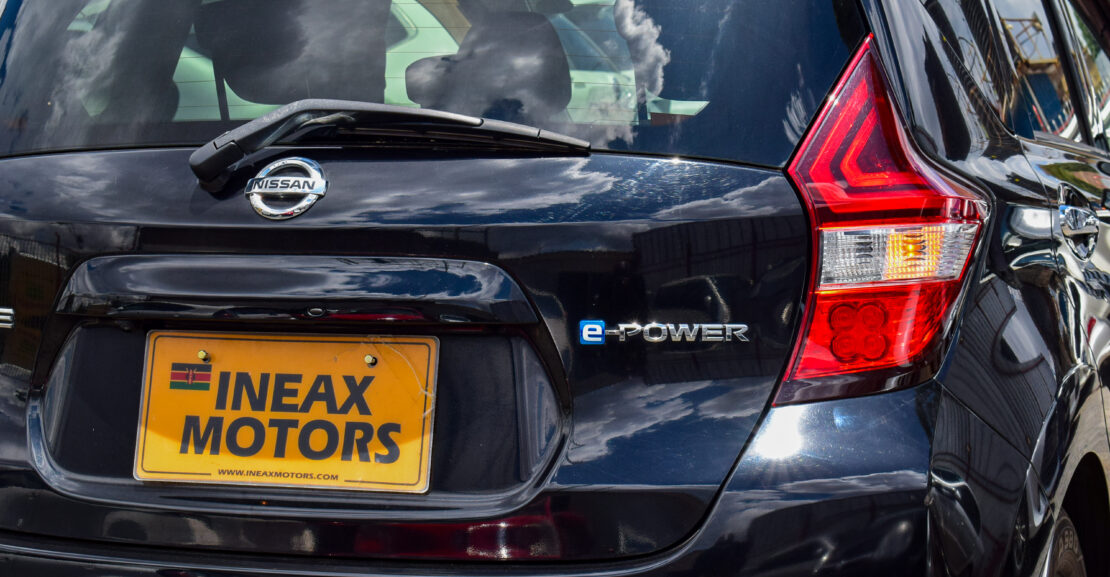Nissan e-POWER is a hybrid powertrain technology developed by Nissan, which combines the benefits of both electric and gasoline power. It is designed to offer a more efficient and environmentally friendly driving experience.
Unlike traditional hybrid systems, the Nissan e-POWER does not rely on the internal combustion engine (ICE) to directly drive the wheels. Instead, it employs a series hybrid configuration, where the gasoline engine acts as a generator to charge the battery, which in turn powers an electric motor that drives the wheels. Here’s how the Nissan e-POWER system works:
Gasoline Engine
The e-POWER system features a small gasoline engine, usually a compact three-cylinder unit. Unlike conventional hybrid systems, the engine in e-POWER does not directly power the wheels. Instead, it operates at a constant speed, optimized for fuel efficiency and minimal emissions.
Generator
The gasoline engine functions primarily as a generator. When needed, it charges the high-capacity lithium-ion battery pack that powers the electric motor.
Electric Motor
The electric motor, powered by the battery, drives the wheels. It provides instant torque, resulting in smooth and responsive acceleration. The electric motor is the primary source of propulsion, offering a quiet and efficient driving experience.
Regenerative Braking
The e-POWER system employs regenerative braking, which converts kinetic energy during deceleration and braking into electrical energy. This energy is then stored in the battery for later use, improving overall efficiency.
The advantages of the Nissan e-POWER system include:
Fuel Efficiency
By utilizing the gasoline engine as a generator rather than directly driving the wheels, the e-POWER system can optimize the engine’s operation for maximum fuel efficiency, leading to reduced fuel consumption and lower emissions.
Electric Drive Experience
The electric motor provides immediate torque, resulting in smooth and quiet acceleration. Drivers can enjoy the benefits of electric driving without the range limitations associated with pure electric vehicles.
Simplified Charging
As e-POWER relies on the gasoline engine to charge the battery, there is no need for external charging infrastructure. This eliminates the need for plug-in charging and makes e-POWER a more convenient option for drivers.
Flexibility
The e-POWER system can be implemented in various vehicle models, from compact cars to SUVs, providing a wide range of options for consumers who prefer hybrid technology.
Range Extender
The e-POWER system acts as a range extender, allowing drivers to travel longer distances compared to a purely electric vehicle. The gasoline engine charges the battery, ensuring a constant power supply for the electric motor. This eliminates the concern of range anxiety often associated with fully electric vehicles.
Seamless Transition
One of the key advantages of e-POWER is its seamless transition between power sources. The system intelligently manages the power flow between the gasoline engine, generator, battery, and electric motor. As a result, drivers experience smooth acceleration and consistent performance without any noticeable shifts or changes in driving behavior.
Optimal Fuel Efficiency
The e-POWER system optimizes the operation of the gasoline engine, allowing it to run at its most efficient speed, typically in the higher RPM range where internal combustion engines tend to perform best. This results in improved fuel efficiency, especially during highway driving or when more power is required.
Environmental Benefits
By reducing fuel consumption and emissions, e-POWER contributes to a cleaner and greener environment. The increased efficiency and reduced reliance on the gasoline engine help to lower greenhouse gas emissions, improving air quality and reducing the overall carbon footprint.
Availability and Future Development
Nissan has been progressively expanding the availability of e-POWER technology across different regions and vehicle models. The company has plans to further enhance the e-POWER system, incorporating advancements in battery technology, powertrain efficiency, and overall performance.
Customer Satisfaction
Nissan e-POWER has garnered positive feedback from customers who appreciate its blend of electric and internal combustion engine technology. The system offers a practical and accessible hybrid solution, providing the benefits of electrification without compromising on driving range or convenience.
Nissan has introduced e-POWER in several models, including the Nissan Note and Nissan Serena in certain markets. The technology has been well-received for its efficiency, performance, and environmental benefits, making it a significant step toward achieving sustainable transportation solutions. Nissan e-POWER represents an innovative hybrid powertrain technology that combines the efficiency of electric drive with the convenience of a gasoline engine. With its range-extending capabilities, seamless power transition, and optimized fuel efficiency, e-POWER offers a compelling alternative for drivers seeking a more sustainable and enjoyable driving experience.
NISSAN E-POWER

